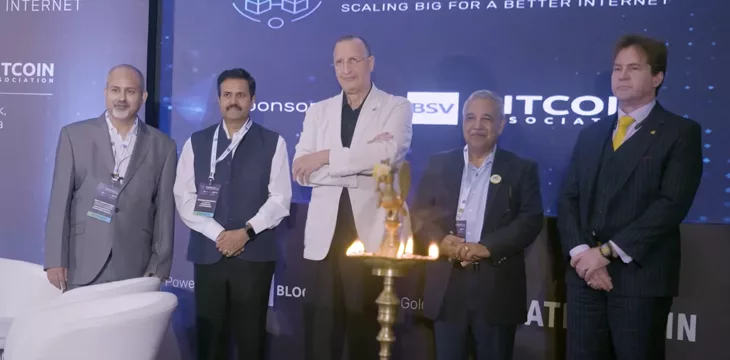
Decentralization has long been a concept in India, even before the country gained independence. It was used in governance to distribute power from central and state governments to local bodies. However, in the digital age, decentralization takes on a new meaning, particularly in relation to data. So, how can decentralization be achieved in this new world? This question was discussed at the Enterprise Utility Blockchain Summit held in Bengaluru.
The summit, organized by TimeChain Labs and Nu10 Technologies, with support from BSV Blockchain Association, Gate2Chain, Sunicon, and Minta, aimed to challenge the current narrative surrounding blockchain technology and demonstrate its utility by providing real solutions to businesses and enterprises. The event brought together policymakers, startup companies, operators, and developers from the BSV blockchain ecosystem to explore how blockchain technology enables peer-to-peer connectivity.
One of the key discussions at the summit revolved around the role of blockchain in enabling peer-to-peer communication in India, which has a massive population of 1.4 billion people. The aim was to explore how these technologies could be utilized to improve people’s lives. One initiative that emerged from the discussions was Ceedi, a decentralized asset exchange for last-mile delivery workers. The founder of Ceedi, James Chako, explained that the objective of the platform is to help these workers find jobs and provide them with access to services like loans and insurance.
The keynote speech by Dr. Craig Wright highlighted the importance of decentralization in enabling direct communication and collaboration among individuals. He emphasized that decentralization isn’t just about running individual nodes but about facilitating direct communication and cooperation.
At the heart of these discussions was the role of IPv6, a communication protocol that allows for direct peer-to-peer communication. Dr. Satya Gupta, chairman of the Bharat IPv6 Forum and Blockchain for Productivity Forum, explained that IPv6 removes the need for intermediaries and enables direct communication between individuals and devices. This is crucial for achieving decentralization.
The Enterprise Utility Blockchain Summit aimed to showcase the power of the BSV blockchain and its synergy with IPv6. Mallikarjun Karra, Zorilla CTO and BSV Blockchain Ambassador to India, stated that the goal was to disrupt the current narrative surrounding blockchain technology and highlight the benefits of the BSV blockchain. The summit brought together key decision-makers from the government and representatives from various industries to learn about the technology and its use cases.
In conclusion, the Enterprise Utility Blockchain Summit in Bengaluru explored how blockchain technology and IPv6 can enable decentralization and peer-to-peer connectivity in India. The discussions focused on real-world use cases and demonstrated the potential for blockchain technology to transform various industries. The summit aimed to challenge existing perceptions and promote the adoption of blockchain technology in India.






